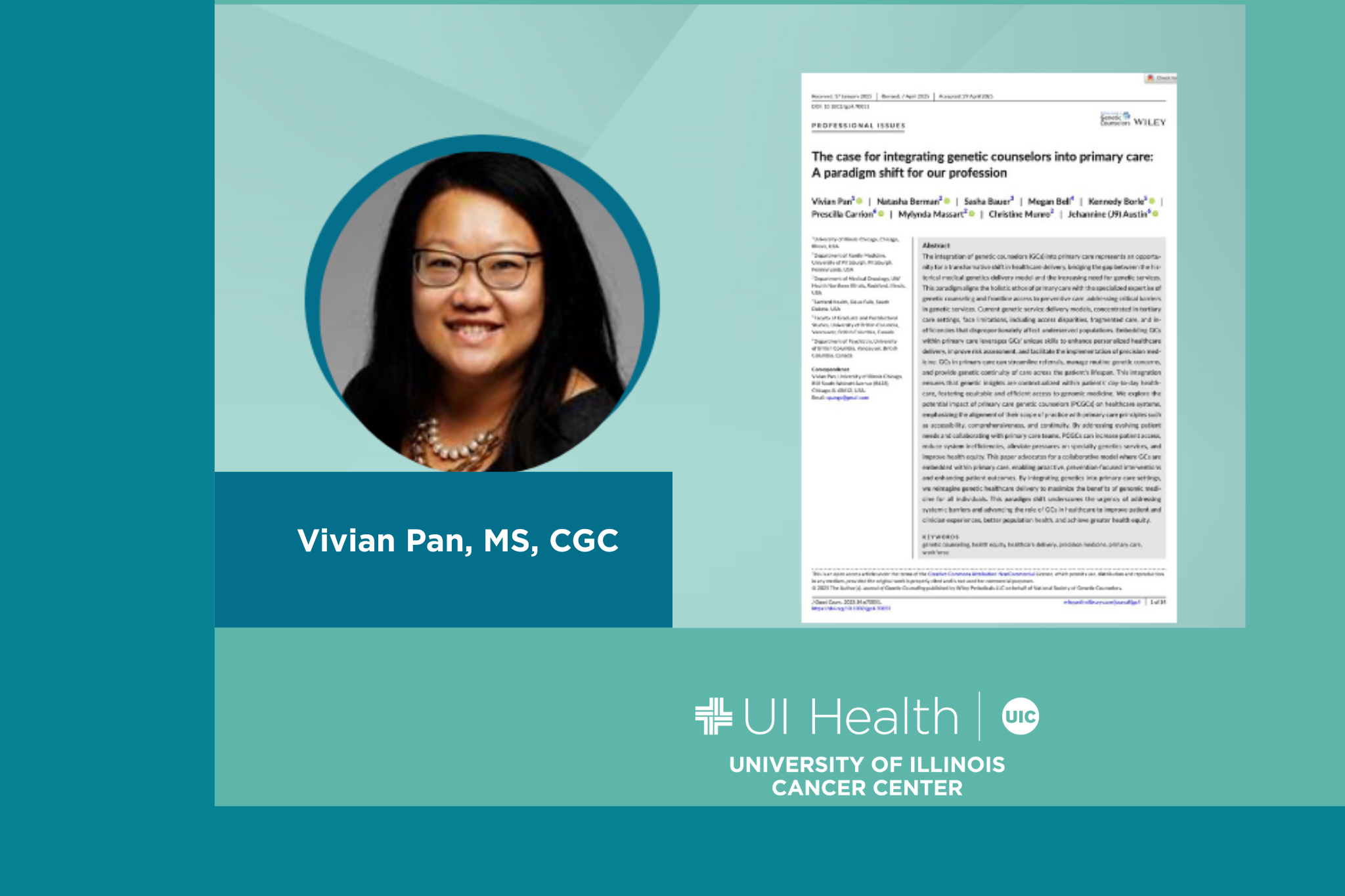
University of Illinois Cancer Center Senior Genetic Counselor Vivian Pan, MS, CGC, is the corresponding author of an article published in the Journal of Genetic Counseling.
The publication, “The Case for Integrating Genetic Counselors Into Primary Care: A Paradigm Shift for Our Profession,” explores how embedding genetic counselors within primary care settings can transform healthcare delivery by improving patient access to genetic services and addressing critical health equity issues.
Genetic counselors are specialists who help people understand genetic risks for diseases and health conditions. Traditionally, these experts have worked in specialty care settings and clinics, making their services hard to access for many people. The article presents a vision for transforming genetic counseling by embedding genetic counselors (GCs) directly within primary care settings. This paradigm shift moves beyond the traditional tertiary care model to address critical gaps in genetic service delivery.
Pan and co-authors propose that placing genetic counselors directly in primary care offices—where most people receive their regular healthcare—could transform how genetic services are delivered. This approach would:
- Make genetic counseling more accessible to everyone, including underserved communities
- Allow patients to receive genetic guidance as part of their regular healthcare visits
- Help primary care providers better incorporate genetic information into routine care
- Enable earlier identification of genetic risks, leading to more preventive care
- Reduce wait times and unnecessary referrals to specialists
The article creates a framework that calls on genetic counselors to embrace an expanded professional role that supports proactive, prevention-focused genetic care. By reimagining where and how they practice, genetic counselors can maximize the benefits of genomic medicine for all communities while simultaneously strengthening the genetic counseling profession.
Other publication authors are affiliated with the University of Pittsburgh, UW Health Northern Illinois, Sanford Health and the University of British Columbia.
